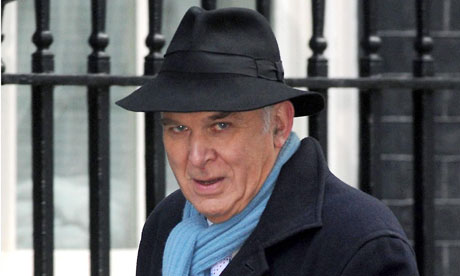
Let's be clear, as we ask whether or not the Daily Telegraph's "sting" operation against various Lib Dem ministers was justified: journalists should not use subterfuge, snooping, false identities, undercover filming or deceit as a regular tool in their daily work.
I know of no code or school of journalism that advocates such unethical practices as routine. The only justification for subterfuge, after the event, is that the person or practices under investigation require extreme measures to gather incontrovertible evidence of wrongdoing that can stand up in a court of law.
Drug dealing, arms dealing, people trafficking, fraud, corruption, exploitation and the misuse of public office for personal gain are some of the grander examples that fall into this category.
The BBC's Watchdog consumer programme also uses a range of tactics, in more modest circumstances, to snare dishonest traders tricking, for example, helpless pensioners.
The implicit deal is that wrongdoing is exposed, and it is in the public interest that society benefits more from acquiring the information, than from the undermining of trust that accompanies this. So such reporting then passes a retrospectively applied rough-and-ready public interest test.
It goes without saying that this is by no means black or white. For example, in the past year, on the eve of a general election, Sunday Times reporters, posing as businessmen, named and shamed senior MPs prepared to take fees for promoting lobbies. A good thing.
In the 1980s there arose a huge debate, still unresolved, over what right a public figure had to privacy, usually over sexual misdemeanours. The current outcry over illegal phone tapping to spy on the private lives of royals and celebrities, by the News of the World, when Andy Coulson was editor, is a live example of this attenuated debate.
Lurid kiss-and-tell stories, using "honeytraps" and worse, remain a partial staple of the tabloids: Wayne Rooney's cheating with prostitutes is eagerly devoured, but is an example of what many people find interesting, rather than being in the public interest.
So this is why the Daily Telegraph's decision to send in reporters posing as harmless but personable constituents, to seek advice from Vince Cable, is something that should make journalists queasy – and readers, too.
If I had been on the paper's staff, I hope I would have turned down the assignment, if asked. However, having said that, I am feeling much less queasy than I think I should.
This is because of the nature of the Con-Lib coalition government, which now clearly contains at least one member who has not made the transition from opposition MP to responsible government minister and statesman. One school of thought has it that this is a real WikiLeaks moment: we all knew really Cable was no supporter of Rupert Murdoch. All that has happened is that he has said so.
But I balance that against the fact that Cable is now exposed as unprofessional, not suited to the gravity of high office. Second, he is part of a government, that, in my view is behaving in a thoroughly undemocratic manner, abolishing bodies such as the Film Council, Audit Commission and Forensic Science service, without consultation. In the media area, the BBC was shamefully dragged into the comprehensive spending review in October, denying the public a debate about licence fee commitments.
As for the blithe way the Liberal Democrats have torn up their university fees pledges, well, don't get me started. So, all things considered, this form of entrapment falls into a grey area. Journalists should not turn to subterfuge as a matter of course.
But the Daily Telegraph – whether it ever intended to publish Cable's views on Murdoch or not – has performed a service in the public interest, nobly assisted by Robert Peston and the BBC.
It has exposed the sheer unprofessionalism of Vince Cable, a man well suited to dancing on the Christmas Strictly Come Dancing special, but not, perhaps, to high office.

No hay comentarios:
Publicar un comentario